Versuchen GOLD - Frei
Boswellia serrata
WellBeing
|Issue 213
In Ayurvedic medicine, potent Boswellia serrata is used as an anti-arthritic, astringent, stimulant, expectorant and antiseptic.

Boswellia serrata is a reasonably large tree (3-4m) that is native to India, North Africa and the Middle East. The gum of the tree (and the part used medicinally) is the Frankincense of Biblical fame. There are more than 20 different species of Boswellia - all with slightly different medicinal components, but frankincense can be extracted from any of the species.
Parts used
The oleoresin, a gum found when the bark is peeled away.
Active ingredients
Essential oils (16 per cent) containing alpha-thujene and p-cymene, along with sugars, flavonoids such as quercetin and terpenoids, including four pentacyclic triterpene acids, with boswellic acid being a main constituent.
Therapeutic uses
Anti-inflammatory: Boswellic acids are powerful antiinflammatory compounds, blocking the synthesis of the 5-Lipoxygenase products (leukotrienes), which are responsible for bronchoconstriction, chemotaxis and increased vascular permeability. Known as one of the most powerful plant antiinflammatories, Boswellia inhibits multiple inflammatory pathways including both the COX-1 and the COX-2 pathways, the complement pathways of inflammation, NFKB (a pivotal mediator of the inflammatory response regulating multiple aspects of the innate and adaptive immune response) and downregulates TNF and other inflammatory cytokines.
Diese Geschichte stammt aus der Issue 213-Ausgabe von WellBeing.
Abonnieren Sie Magzter GOLD, um auf Tausende kuratierter Premium-Geschichten und über 9.000 Zeitschriften und Zeitungen zuzugreifen.
Sie sind bereits Abonnent? Anmelden
WEITERE GESCHICHTEN VON WellBeing

WellBeing
WE'RE ALL in it together
Primates share food. Pandas share bamboo. Yet humans have engineered loneliness into an art form. While our screens glow with artificial connection, a quiet crisis unfolds as younger generations feel more isolated than ever before. But watch closely as communities prove that perhaps we haven't completely forgotten how to be tribal after all.
7 mins
Issue 216
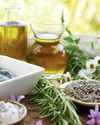
WellBeing
The power of accreditation in natural medicine
The support and interest in natural medicine is growing with more people turning to complementary therapies to boost their health and wellbeing.
2 mins
Issue 216

WellBeing
Breaking free of comparison
Every time you catch yourself thinking, “They’re doing it better,’ your inner child remembers being told to be more like someone else. But what if this instinct to compare isn’t natural at all — rather, it’s a carefully constructed habit with roots in your earliest memories? Unpacking this inheritance might just be the key to reclaiming your sense of worth.
3 mins
Issue 216

WellBeing
THE GUT SKIN CONNECTION
The science of skin health is shifting – expanding beyond the epidermis and into the microbial metropolis of the gut. Clear skin may depend less on what you see in the mirror and more on a hidden ecosystem within.
7 mins
Issue 216
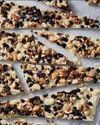
WellBeing
A culinary cuddle
Imagine a treat that's not just a delicacy but a delightful narrative of nourishment, wrapped in creamy white chocolate and sprinkled with nature's most charming ingredients.
2 mins
Issue 216
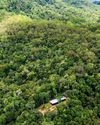
WellBeing
GOING OFF-GRID
Many fantasise about severing their financial dependence on big companies for everyday needs like power and water. Others make it a reality. What can we learn from them?
7 mins
Issue 216

WellBeing
Untamed BALI
For many Australians, Bali has become synonymous with crowded streets and mass tourism. Yet vast swathes of the island remain wonderfully wild. The western coast, with waves for all levels and authentic village life, tells a different story of Bali.
6 mins
Issue 216

WellBeing
Stop and smell the roses
What's in a name?” Shakespeare's Juliet famously pondered. For MV Skintherapy, it's everything, which is why they've deliberately used the term “skin therapy”, instead of “skincare”.
3 mins
Issue 216
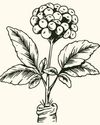
WellBeing
Siberian ginseng (Eleutherococcus senticosus)
(Eleutherococcus senticosus)
3 mins
Issue 216
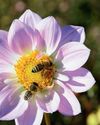
WellBeing
Green Beat
A new study published in Science highlights the alarming risks pesticides pose to ground-nesting bees, vital for pollination and food production.
2 mins
Issue 216
